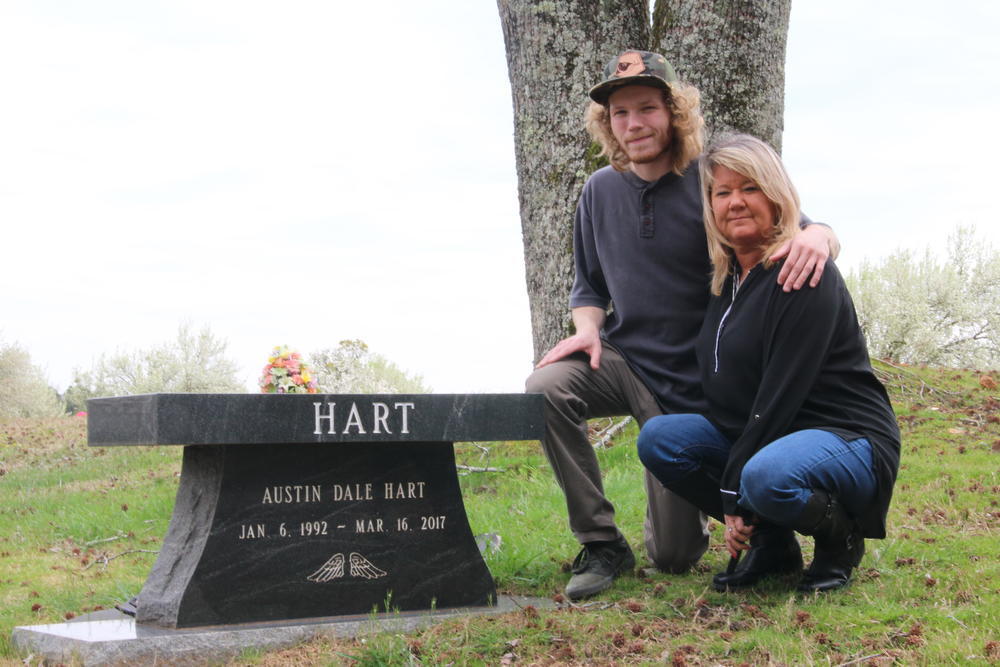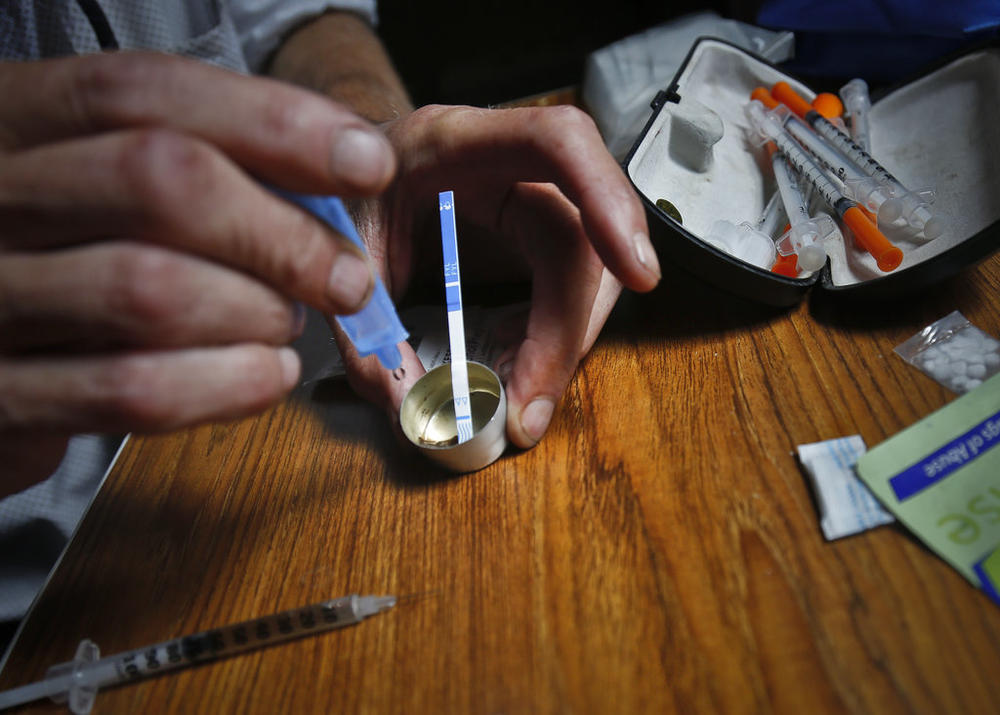
Caption
Preston Wysocki (left) and Heather Wysocki visit the graveside of Austin Hart (shown) and Dustin Hart (on the opposite side) Saturday, March 14, 2020. Both men — Preston's brothers and Heather's sons — died of drug overdoses.
Credit: Ellen Eldridge / GPB News


